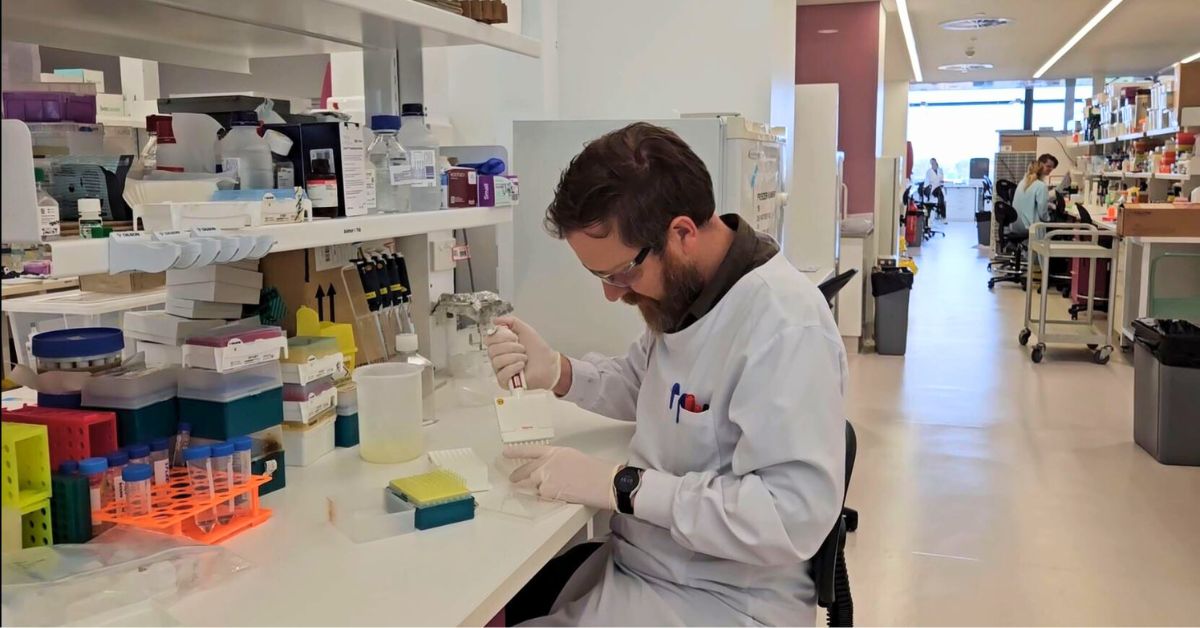Dr Alistair Cook will use new funding to investigate how low-dose radiotherapy can improve immunotherapy outcomes, with potential benefits for patients who don’t currently respond to treatment.
Dr Alistair Cook, from the National Centre for Asbestos Related Diseases (NCARD), has been awarded a prestigious Tour de Cure grant of $100,000 to explore how low-dose radiotherapy may enhance the effects of cancer immunotherapy. The three-year project will run from 2025 to 2027.
Immune checkpoint inhibitors (ICIs) are a class of immunotherapy used to treat a range of cancers. However, fewer than half of patients currently benefit from these therapies. Dr Cook’s research focuses on improving these outcomes using a carefully timed, low-dose radiation approach.
Preclinical studies from Dr Cook’s team have shown that five consecutive low-dose radiotherapy treatments can alter the tumour environment in ways that support immune responses. These changes include improved blood flow and oxygenation and greater immune cell access to tumours. When this radiotherapy was combined with ICIs in laboratory models, the result was significantly improved tumour control – achieving 100% cure rates in models where neither therapy worked on its own.
“This project will help us understand how broadly applicable our treatment is, and can take us one step closer to running a clinical trial in people with not only mesothelioma, but a wider range of tumours that are currently hard to treat”.
Dr Alistair Cook, NCARD
With this grant, Dr Cook will now investigate whether this approach is effective across other cancer types and in diverse preclinical models. This is important because patients vary in their genetic background and tumour characteristics, which can influence how they respond to treatment.
The second goal of the project is to identify biomarkers—features in tumours that could help predict which patients are more likely to respond to radio-immunotherapy before starting treatment. This could help personalise treatment and avoid unnecessary side effects.
Importantly, the approach uses radiation doses that are not designed to kill cancer cells directly, which may reduce harm to surrounding healthy tissue. This could make it more suitable for treating cancers in sensitive areas like the lungs.
The findings from this project could support the design of clinical trials, helping to accelerate the translation of this combination approach into patient care.
Watch Dr. Cook explain his innovative research approach in this short video prepared for his Tour de Cure grant application: Watch the video.


